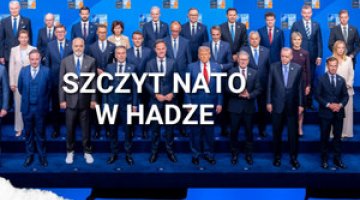The Baltic states after the NATO summit in Newport
The decisions taken at the NATO summit in Newport (4-5 September) to boost the security of the Alliance’s eastern flank (updating contingency plans, the establishment of a Very High Readiness Joint Task Force, the preparation of military infrastructure and prepositioning of equipment and supplies, and the establishment of a continuous presence of allied forces on a rotational basis) has been officially presented in the Baltic states as increasing their security. The US President Barack Obama’s visit to Estonia (3 September) reinforced this message. In addition, the Ämari airbase in Estonia will become NATO’s air training centre. For Latvia, it was important to highlight the importance of the newly-established NATO-accredited Strategic Communications Centre of Excellence in Riga.
Commentary
- It is in the interests of the Baltic states to emphasise the cohesion of NATO, and to present the decisions taken at the Newport summit as a success in reinforcing the security of the Alliance’s eastern flank. This is important both because of the need to send a coherent message from NATO to Russia and to calm public sentiment in the Baltic countries. All the Baltic states recognise the United States as their most important ally in NATO. Not only is the additional presence of American troops on military exercises in Lithuania, Latvia and Estonia thus very important for them, but likewise the visit by President Obama, and his assurance of the Alliance’s solidarity and the binding force of Article 5 in relation to the Baltic states.
- Despite emphasising the importance of the collective defence dimension within NATO, the Baltic states still appear interested in participating in foreign operations. Of importance in this context is the declared participation of Lithuania, Latvia and Estonia in the Joint Expeditionary Force, listed in the declaration of the Newport summit, which will be developed on the basis of the military capabilities of the United Kingdom as a framework state. The participation of the Baltic states in this initiative is the result of several years of British political and economic involvement in the region, and the perception of the UK as one of the key European allies in the area of collective defence in the Baltic states.
- Regardless of the conclusions of the NATO summit in Newport, the level of the Baltic states’ concern at the possible actions of Russia, including moves aimed at discrediting and undermining their sovereignty, has not decreased. Discussion has resumed in these countries on reforming the armed forces, the powers of the internal security agencies and their co-operation with the military, and legal changes concerning the defence sector. Even before the summit, Lithuania and Latvia had reiterated their commitment to gradually achieving the spending level of 2% of their GDPs on defence by 2020 (Estonia has already reached this level), and have already slightly increased their defence funding.





